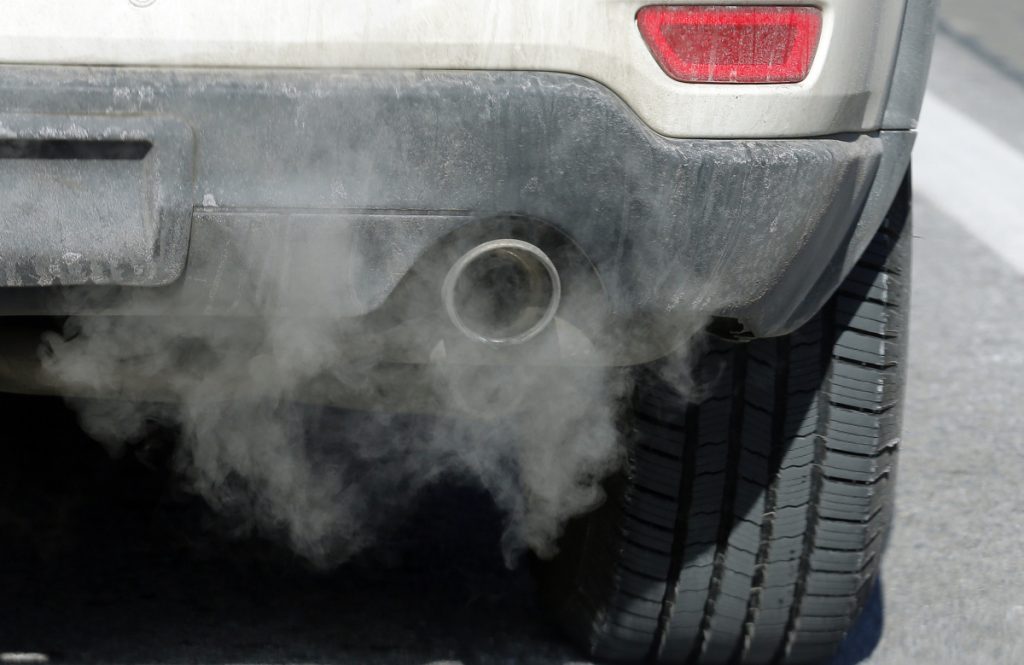In a recent column by Nicolas Loras of the Heritage Foundation, he praised the growing production of U.S. fossil fuels that is helping lower the price of gasoline (“Commentary: We’re paying less at the pump – and that’s just the start,” Jan. 20). However there was no mention of the climate impact or the massive government subsidies that every taxpayer is funding to support the fossil fuel industry.
Recent scientific studies such as the U.N. Climate Report predict an increasing global climate risk and potential chaos without immediate and aggressive efforts to reduce greenhouse gas emissions. At the same time, the U.S. and several states are providing a massive $20.5 billion in annual subsidies for the fossil fuel industry at taxpayer expense. Examples include $2.5 billion to subsidize fossil fuel exploration, $4 billion to incentivize coal production, and $5.8 billion in state fossil fuel subsidies.
Fossil fuel companies drill and mine on federal and state land without the royalties that a private landowner would charge. Offshore drilling is a federal giveaway. The oil depletion allowance and accelerated depreciation reduce corporate taxes for the fossil fuel industry.
Meanwhile, taxpayers pay for historically severe wildfire and flooding damage along with the public health burden from air pollution, heat waves, coal miner lung disease and more. We also pay for the damage to public infrastructure from fossil fuel transportation. When proposals to roll back fossil fuel subsidies were initiated several years ago, the fossil fuel industry spent $354 million to successfully protect their $20.5 billion in government support, which costs the average family about $160 per year. Meanwhile, alternative energy tax incentives are only $1.1 billion, with some set to expire.
The Citizens Climate Lobby proposes to reverse this insanity with carbon fee and dividend federal legislation that would start with a $15 fee for each metric ton of CO2 emitted by a fossil fuel, rising over time. The impact would begin at 16 cents/gallon of gasoline, but proceeds from these fees would be returned as monthly rebate payments to citizens, making it revenue neutral.
This would change the incentives for all corporations. Automobile companies will have an incentive to build more efficient gas or electric vehicles, utilities will be financially motivated to move from fossil fuels to clean energy, manufacturing will trend from fossil fuel to electrical use and building owners will move from fossil fuels for heating and cooling to heat pumps. Furthermore, every citizen will have an incentive to reduce fossil fuel use.
The carbon fee and dividend bill, H.R. 763, is a bipartisan effort that will help advance all forms of clean energy and reduce emissions — and do so with minimal governmental regulation.
Tony Marple is a selectman in Whitefield. He was formerly chief financial officer of MaineGeneral Health and director of the Office of MaineCare Services.
Send questions/comments to the editors.



Success. Please wait for the page to reload. If the page does not reload within 5 seconds, please refresh the page.
Enter your email and password to access comments.
Hi, to comment on stories you must . This profile is in addition to your subscription and website login.
Already have a commenting profile? .
Invalid username/password.
Please check your email to confirm and complete your registration.
Only subscribers are eligible to post comments. Please subscribe or login first for digital access. Here’s why.
Use the form below to reset your password. When you've submitted your account email, we will send an email with a reset code.